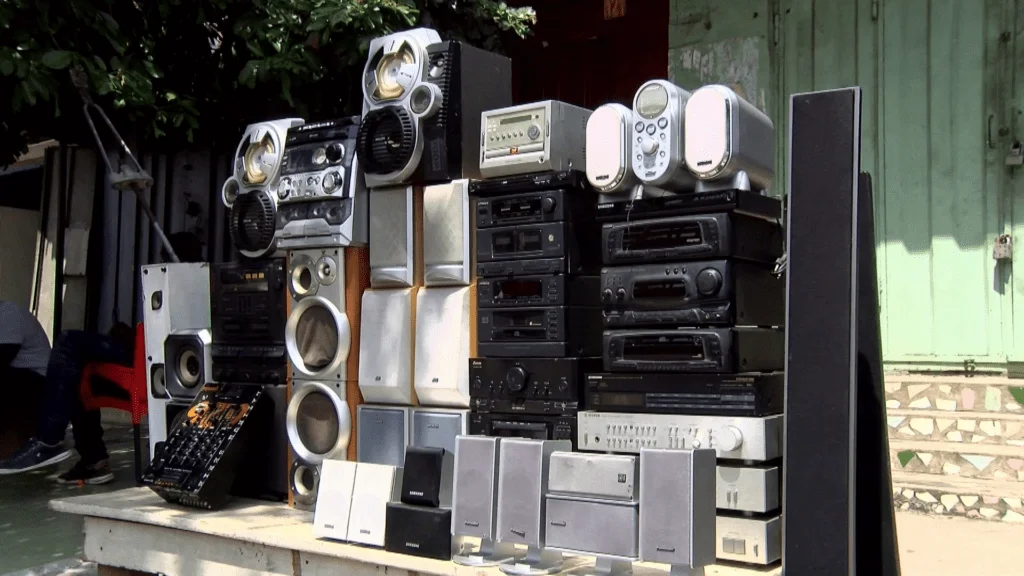The Concerned Home-Used Dealers Association in Kumasi has requested the Energy Commission to reconsider their decision to ban the importation of used electrical appliances.
The Energy Commission’s new policy affects the importation of 19 categories of electrical appliances, including TV sets, air conditioners, washing machines, and computers. The traders, fearing the ban will drive them out of business, are pushing for the decision to be reviewed.
The Energy Commission has stated that the purpose of the ban is to protect consumers from buying faulty or substandard used electrical appliances, which could also increase energy consumption and strain the national power supply.
However, dealers in used electrical appliances argue that this concern is outdated, as most of the second-hand appliances being imported now consume much less electricity than in the past.
Statistics show that Ghana’s energy demand has been increasing over the years. According to the World Bank, household electricity consumption in Ghana rose by over 20% between 2015 and 2020, increasing the need for energy-efficient devices.
The Energy Commission believes banning the importation of used appliances could help reduce this rising energy demand and lower electricity costs for consumers.
Despite these reasons, many consumers and dealers remain skeptical. A significant portion of the Ghanaian population, especially in urban centers like Kumasi, prefer used appliances due to their affordability.
A recent survey conducted by the Ghana Statistical Service indicated that nearly 65% of low and middle-income households in major cities purchase used appliances because they are much cheaper than brand-new items.
Furthermore, many consumers believe that used appliances are more durable and easier to repair compared to newer models.
Abdul Malik, the Ashanti Regional Deputy Secretary of the Concerned Home-Used Dealers Association, expressed his frustration with the Energy Commission’s decision.
He claims that the dealers were not properly consulted and that the ban was implemented without their input. “They have banned used electrical appliances without engaging us. We only had one meeting with them, and after that, there was no further discussion,” he said.
The home-used dealers also highlight the contradiction in the policy. While the Energy Commission allows personal electrical appliances brought into the country for individual use, the same appliances are banned from being sold.
Dealers argue that these appliances, even if brought in for personal use, will still consume electricity, which contradicts the commission’s claim that banning sales is about energy efficiency.
Consumers continue to favor used electrical appliances for their reliability and lower cost. For instance, Tiwaa, a customer, explained how she purchased a second-hand standing fan over five years ago and has never had any issues with it.
“Brand-new appliances are expensive, but used appliances are affordable and durable,” she said.
Another consumer, Phillip Amoah, mentioned how easy it is to find replacement parts for used appliances. “The parts for brand-new items are hard to find when they break down, but with used appliances, you can get the parts in any electrical shop. Plus, they don’t use much power,” he said.
In response to these concerns, the Concerned Home-Used Dealers Association has called for the government to step in and address their grievances.
They believe the Energy Commission influenced the law without properly engaging stakeholders. Abdul Malik emphasized that they are not against regulations but want their concerns heard and addressed.
In conclusion, while the Energy Commission’s efforts to regulate the importation of used appliances are aimed at improving energy efficiency, the dealers and consumers see the ban as a threat to their livelihood and affordable access to electrical products.
As the debate continues, it remains to be seen if the government will consider the traders’ requests to lift the ban on used appliances or find a compromise that balances energy conservation with consumer needs.






















